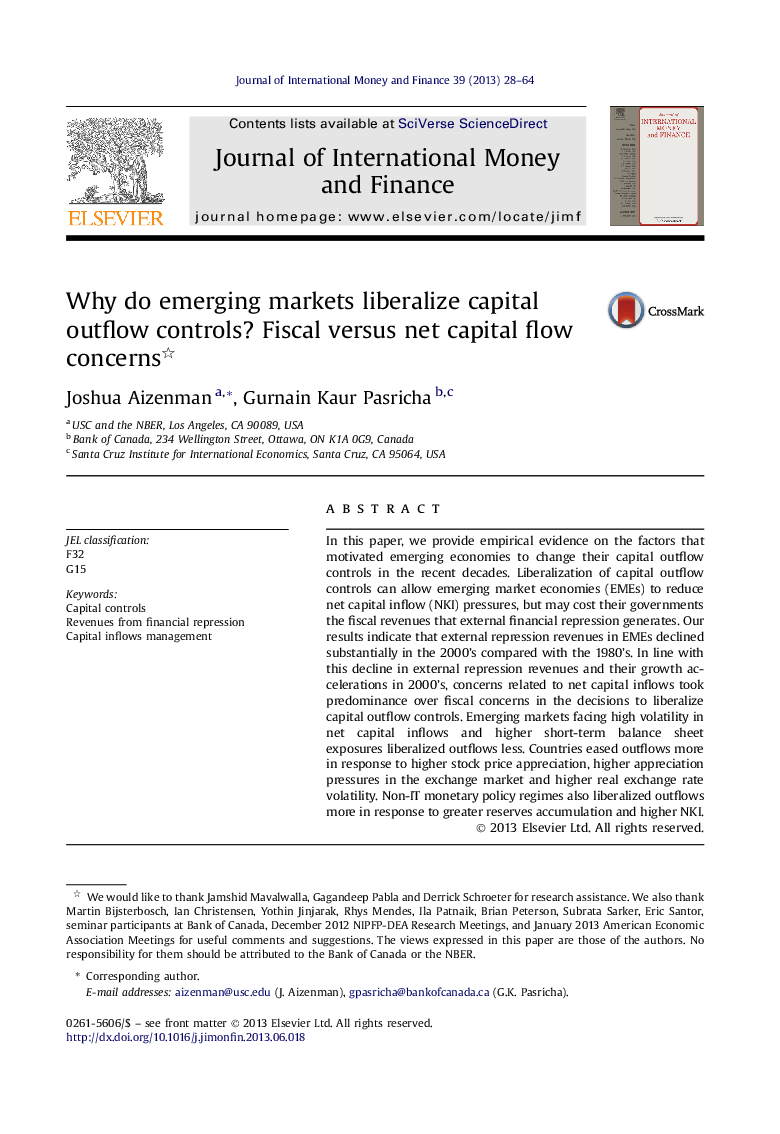| کد مقاله | کد نشریه | سال انتشار | مقاله انگلیسی | نسخه تمام متن |
|---|---|---|---|---|
| 7365876 | 1479177 | 2013 | 37 صفحه PDF | دانلود رایگان |
عنوان انگلیسی مقاله ISI
Why do emerging markets liberalize capital outflow controls? Fiscal versus net capital flow concerns
ترجمه فارسی عنوان
چرا بازارهای نوظهور کنترل های خروج سرمایه را آزاد می کنند؟ نگرانی های مالی نسبت به جریان سرمایه خالص
دانلود مقاله + سفارش ترجمه
دانلود مقاله ISI انگلیسی
رایگان برای ایرانیان
کلمات کلیدی
موضوعات مرتبط
علوم انسانی و اجتماعی
اقتصاد، اقتصادسنجی و امور مالی
اقتصاد و اقتصادسنجی
چکیده انگلیسی
In this paper, we provide empirical evidence on the factors that motivated emerging economies to change their capital outflow controls in the recent decades. Liberalization of capital outflow controls can allow emerging market economies (EMEs) to reduce net capital inflow (NKI) pressures, but may cost their governments the fiscal revenues that external financial repression generates. Our results indicate that external repression revenues in EMEs declined substantially in the 2000's compared with the 1980's. In line with this decline in external repression revenues and their growth accelerations in 2000's, concerns related to net capital inflows took predominance over fiscal concerns in the decisions to liberalize capital outflow controls. Emerging markets facing high volatility in net capital inflows and higher short-term balance sheet exposures liberalized outflows less. Countries eased outflows more in response to higher stock price appreciation, higher appreciation pressures in the exchange market and higher real exchange rate volatility. Non-IT monetary policy regimes also liberalized outflows more in response to greater reserves accumulation and higher NKI.
ناشر
Database: Elsevier - ScienceDirect (ساینس دایرکت)
Journal: Journal of International Money and Finance - Volume 39, December 2013, Pages 28-64
Journal: Journal of International Money and Finance - Volume 39, December 2013, Pages 28-64
نویسندگان
Joshua Aizenman, Gurnain Kaur Pasricha,
